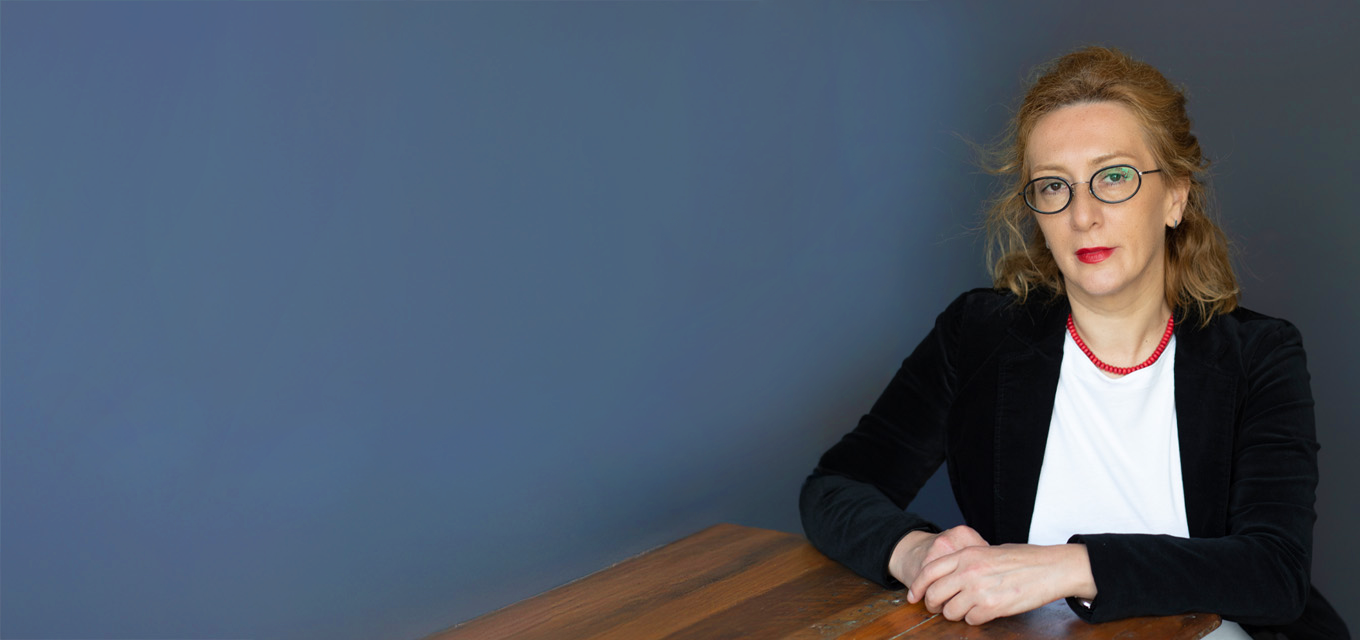Design as a profession; modern skills and challenges that arise in the wake of artificial intelligence. In this blog, we chat with Medea Tabatadze, the managing partner of the consulting and research company Insource.
Medea, let's begin our discussion by exploring the significance of creative skills and innovation in today's business landscape. From your perspective, how vital is this human ability nowadays?
Creative thinking holds the power to create groundbreaking innovations in business. In today's dynamic and multifaceted market, the evolution and enhancement of services or products heavily rely on a creative mindset. The quality of long-term success is often determined by creativity. It's not just about retaining customers. It's also important for fostering a thriving internal environment within the organization.
Designer as a profession. How would you define this role in Georgia and what is its definition based on your experience? We're aware of your interest in design.
In Georgia, the perception of this profession still revolves around visual aspects, whether it's interior design, landscape design, or other related fields. A designer is truly someone who crafts products or services tailored to user needs. Therefore, this profession encompasses a much broader spectrum. With a new perspective, it's a profession which is capable of addressing real-world challenges across any industry or field, by devising personalized and viable solutions. Nowadays, an organizational leader is and should be required to be a great designer. So, when we talk about the profession of a designer, we envision a decision-maker capable of swiftly adapting to change. I believe that soon, every team will integrate a designer, tasked with finding optimal solutions to real problems.
Currently, alongside managing Insource, you're learning programming, data analysis, management, and product management. How crucial do you consider it to master diverse skill sets and explore various fields simultaneously with your primary profession?
In today's world, career development has undergone a transformation. It demands individuals to continually prioritize learning and acquiring new skills. A vital prerequisite for this, regardless of the generation, is the ability to properly manage energy and emotions. Given the rapid pace of change in today's environment, being prepared for these shifts is significant for professional growth. This means that it is important to maintain a constant curiosity for learning in new fields, discovering, and acquiring fresh skills. Recognizing and embracing the idea that you will always be in a state of change helps in navigating the current processes and sustaining productivity.
New reality. Constant changes. Do you think the human management model has changed? From your personal experience, what tips do you have for creating readiness for change?
These days, people of all generations suffer from attention and concentration problems. There are many stressors around us that have a negative impact on a person's mental health. Everyone is talking about these matters nowadays, but in reality, mental and physical health remains an unresolved issue.
Lack of energy, low productivity, lack of motivation and tension drastically reduce the quality of work and productivity. A person needs to develop personal hygiene in relation to technology, work environment, and professional life. Developed countries are already working on management models focused on this, which has a direct impact on people's productivity, and therefore, they show more willingness to change.
The paradox of technological progress... the more technology develops, the more human workload increases. What can you tell us about this phenomenon?
In his book Disruptive Innovation Clayton Christensen writes that technological progress will take more time away from people because people do everything with the help of technology. In our situation, any human need is turned into a technological product. There are applications for education, socialization, nutrition, health care… Accordingly, since the role of technology in our daily life is huge, it becomes crucial to protect “hygiene” and to load our minds with non-technological activities.
What role does design play in these circumstances, and what are the challenges within the Georgian market?
Our main challenge is finding and identifying the wishes and problems of the customers. We are just starting to use design tools in organizational and business solutions. It will become very important to have a professional designer who will ask the right questions in the team, make the right emphasis, and create the right methodologies to solve the problems.
How and where can individuals acquire knowledge in this area? What recommendations would you have for those who are interested in this direction?
As the design approach and thinking grows in popularity, so do the opportunities to acquire these skills. Without a doubt, IDEO and Stanford Design School courses offer excellent opportunities for acquiring high-quality knowledge. I'd also recommend exploring the MIT course on design thinking. Also, there is Harvard's Design Thinking course for creating human-centered solutions.
In my opinion, the establishment of the Design Institute marks a groundbreaking, timely, and bold initiative in Georgian reality. From my perspective, mastering design thinking and its approach requires dedicated study and extensive practice.
And lastly, what are your thoughts on professions that won't be replaceable by artificial intelligence, and which human skills will be particularly valuable along these advancements?
Making predictions about professions is a difficult task. However, I am certain that human skills like creativity, critical-analytical thinking, and design thinking will remain irreplaceable despite the advancement of artificial intelligence. Design thinking—a blend of techniques and skills—will undoubtedly be of great importance in correctly identifying and solving problems.
Interview by Nini Papashvili
სხვა ბლოგები











